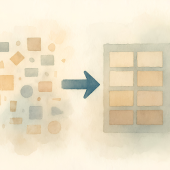If you’ve been following this series on blockchain, you now know about blockchain’s capabilities beyond Bitcoin and how to keep up with the disruption. Now, it’s time to delve into another exciting application of blockchain: smart contracts. Smart contracts are a transformative new technology that can revolutionize the way businesses process deals.
You may be wondering, “If contracts start getting smart, how long will I have my job as a lawyer?” Rest assured, the term “smart contracts” is a misnomer, at least to some extent. Smart contracts are neither “smart” nor really “contracts,” at least not in the classic sense of the word. First, we must explore the concept of “trust” and the related concept of “permanence.” Then, we will discuss the word “contract.” Understanding these terms is the secret to understanding smart contracts and harnessing their power.
Let’s (finally) set this agreement in stone
Blockchain, for all its fascinating intricacy, is essentially a kind of material. Through the special mix of cryptography and decentralization that was discussed earlier in this series, permanence, transparency, and neutrality are created. Setting something on a blockchain is like setting something in stone. It makes trust easier, because you can’t easily change it, and it’s highly visible.
Think about a blockchain as a piece of stone you can write things on (instead of a piece of currency). We have a pretty high level of trust in stone, as it’s more permanent, unlike other materials like paper. Stone equals solid, trusted, and tangible proof — and that’s what cryptographs like smart contracts offer.
“Contract” is a very loaded, overused term
The word “contract” has a lot of baggage, especially if you negotiate contracts as part of your job. But smart contracts facilitate anything of value (e.g., money, property, or shares) in a transparent, conflict-free way, without a middleman (e.g., bank or a store).
Smart contracts are commonly compared to a vending machine because they are automated and self-executing. If you get thirsty on a hot summer day, then you drop US$1.50 in a vending machine and press a button. As a result, you will get your drink of choice. This whole vending machine interaction was actually a small program (or contract) coded (i.e., written) into the machine, which ran when you hit the button (i.e., signed off on it).
In other words, computer code is kind of like a contract, though not necessarily in the classic legal definition that we are used or have been trained to see. Unlike a contract in a legal sense, this is something both humans and machines can read. Therefore, instead of going to a lawyer to get the document, with smart contracts, you drop a Bitcoin into the vending machine (i.e., a ledger) and it is stored in your escrow. A smart contract defines various parameters, such as the rules and penalties around an agreement, in the same way that a traditional contract does. It also automatically enforces those obligations. Smart contracts allow us to combine trustworthy properties of digital stone with the vending machine-like automation of traditional programming.
What exactly is a smart contract?
A smart contract is a code intended to contribute, verify, or implement the negotiation or performance of an agreement. They allow us to complete credible transactions without third parties because these transactions are, like contracts, written in stone, trackable, and irreversible. Smart contracts contain all the information about the contract terms and execute all programmed actions automatically.
A look at the typical smart contract process can help illustrate this idea. First, assets and contract terms are coded and put into the block of a blockchain. This contract is distributed and copied multiple times between the nodes of the platform. After the trigger happens (e.g., a payment), the contract is performed in accordance with the contract terms. The program checks the implementation of the commitments automatically.
Ethereum, probably the most popular smart contract platform, allows us to put smart contracts into operation for everyone, giving further impetus to deal making. But there are other platforms that allow us to perform similar functions. In fact, many different projects facilitate smart contract implementation. They vary with their possibilities, diversity of smart contracts templates, and required programming skills. We’ll likely observe a proliferation of smart contract applications and services in the near future.
Smart contracts are a groundbreaking technology that’s emerging from the blockchain space, beyond the typical ideas of cryptocurrency. Now that you have a working understanding of smart contracts, the next article in this series will discuss how smart contracts can be used in business across various industries.




